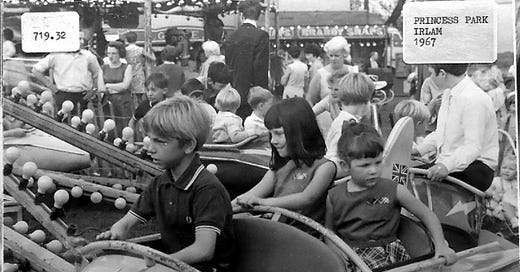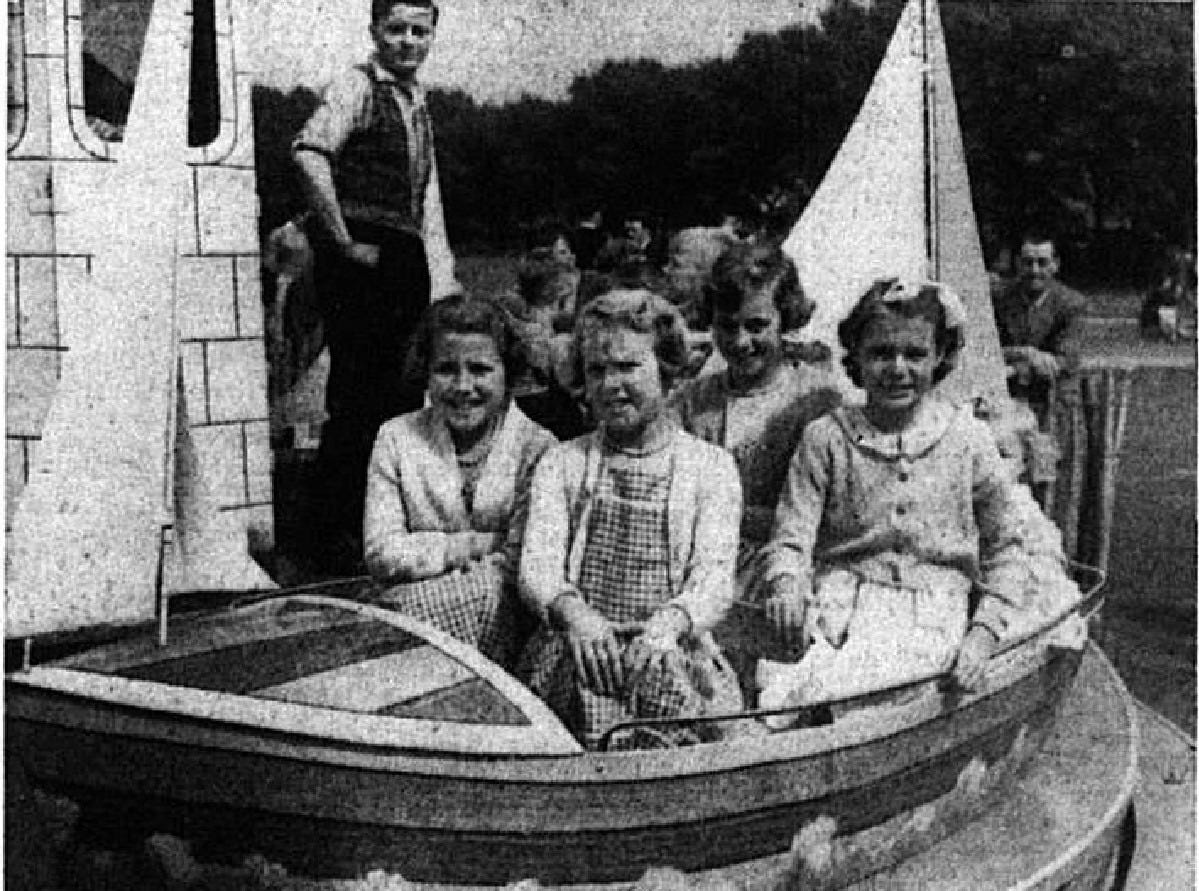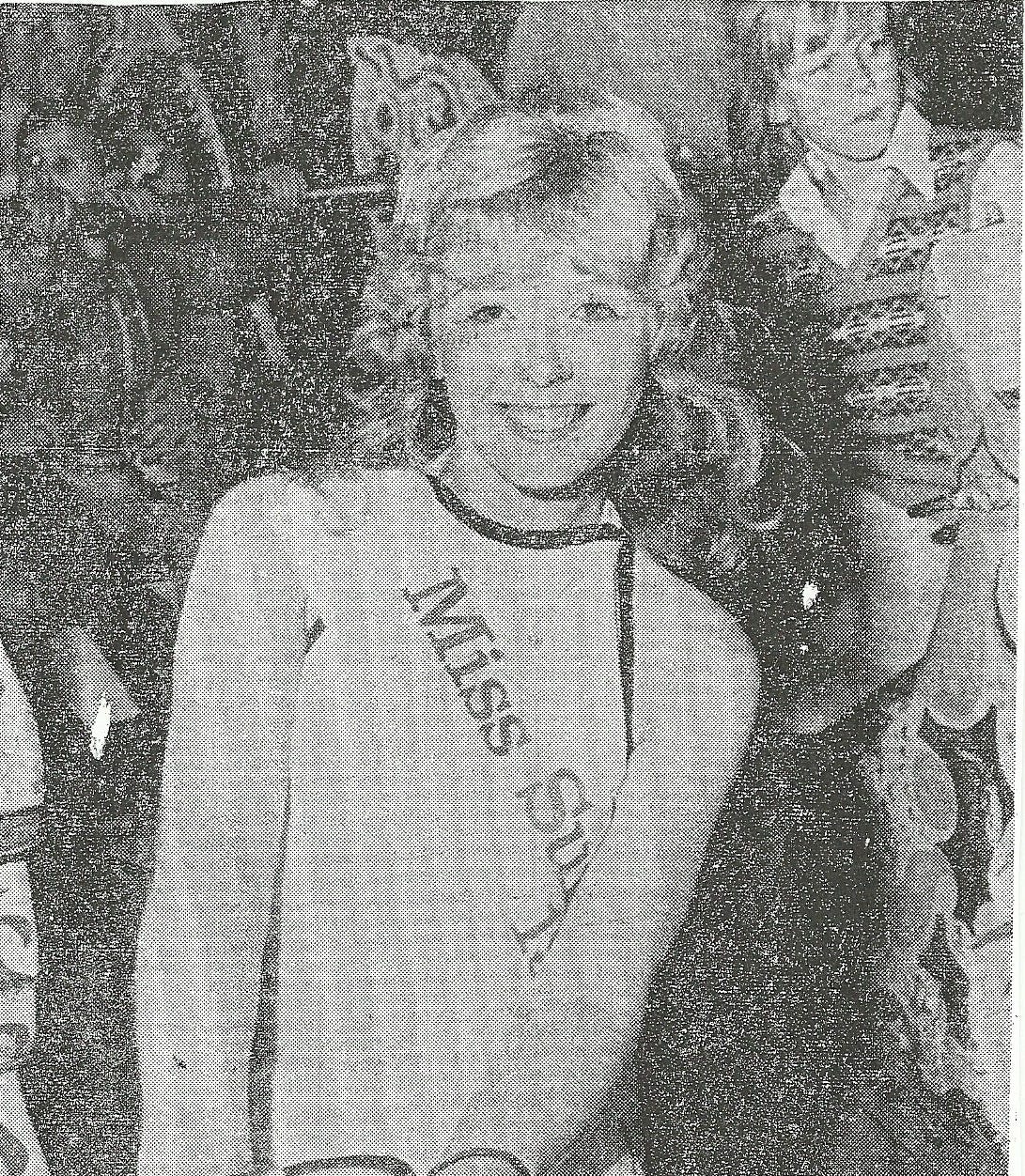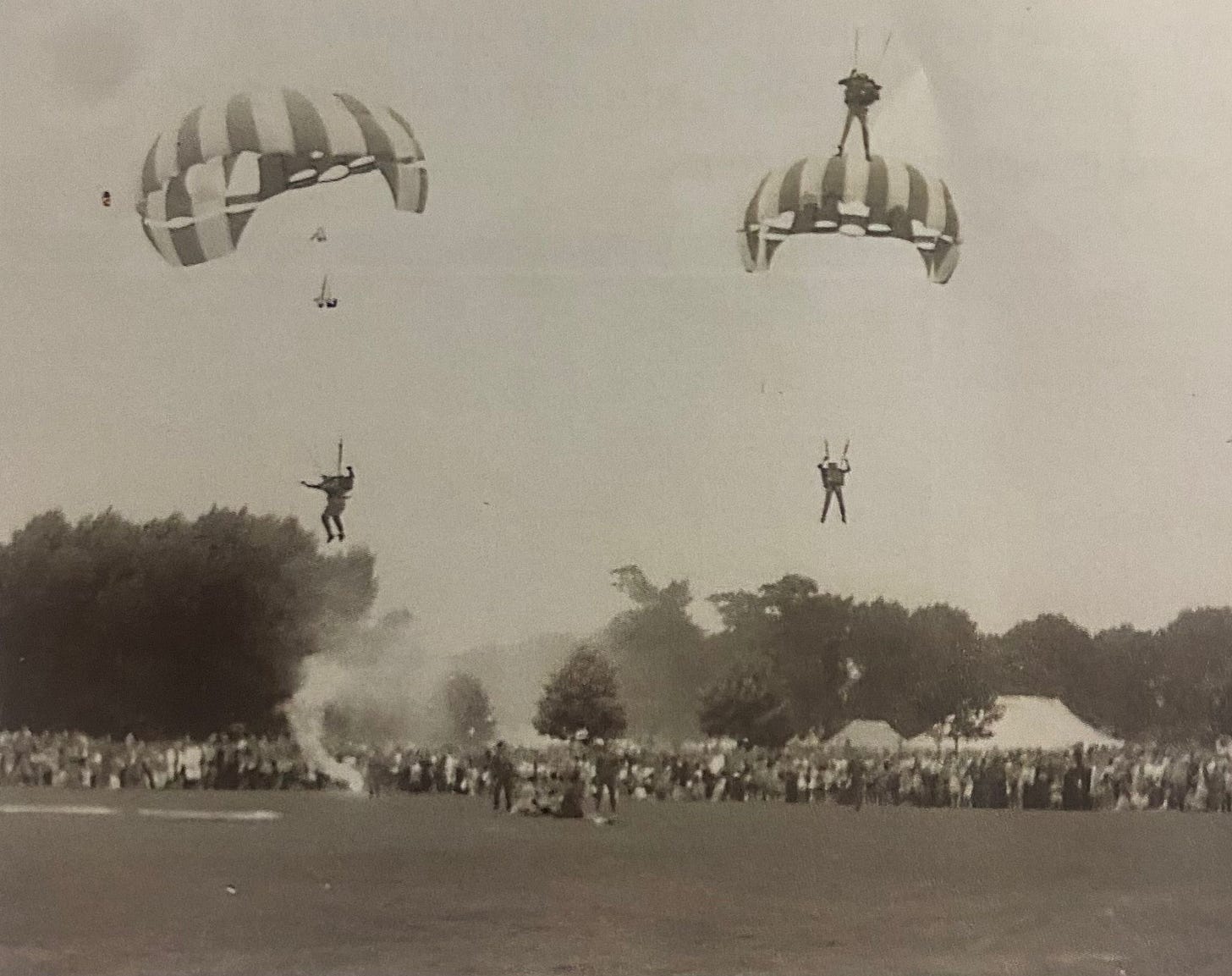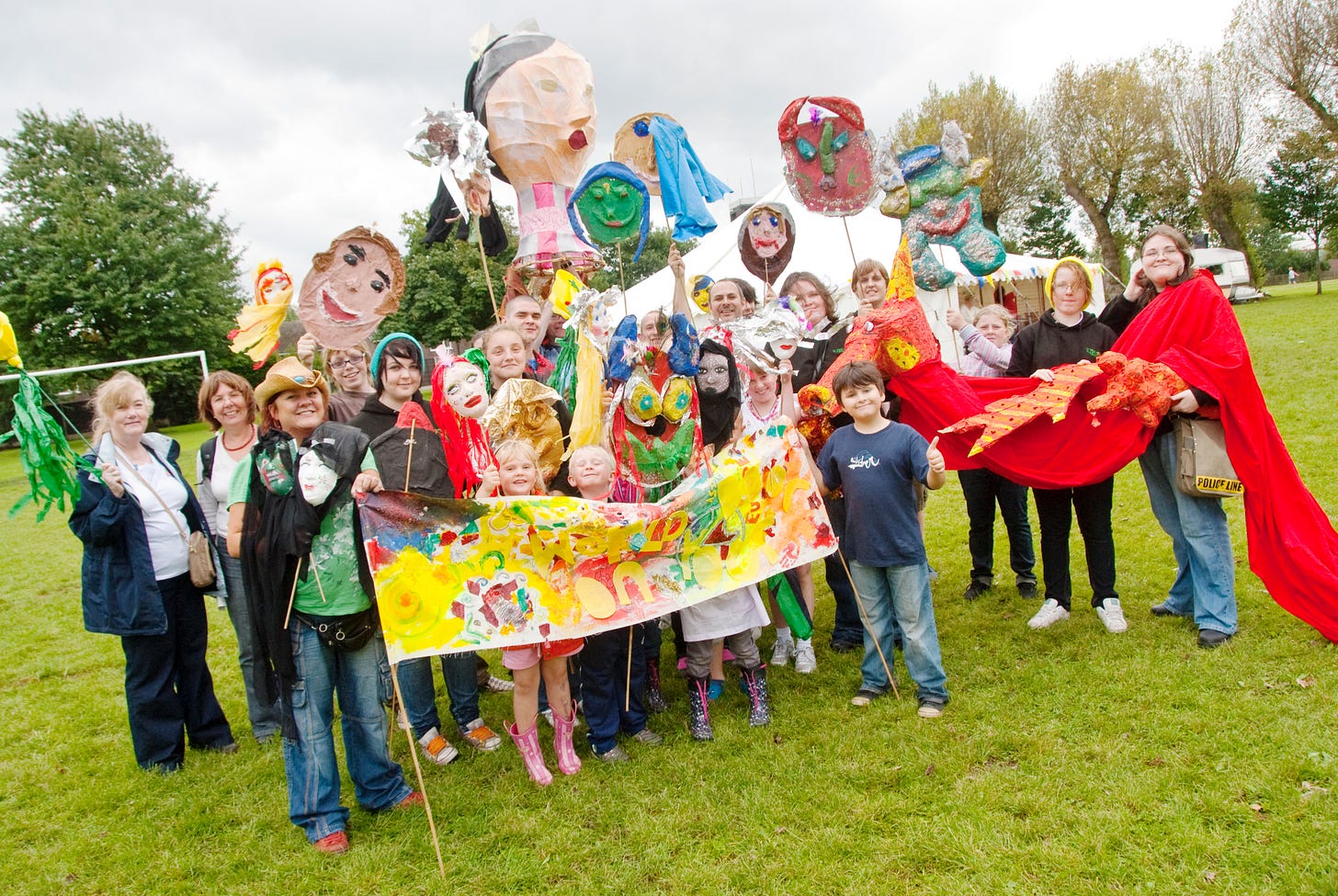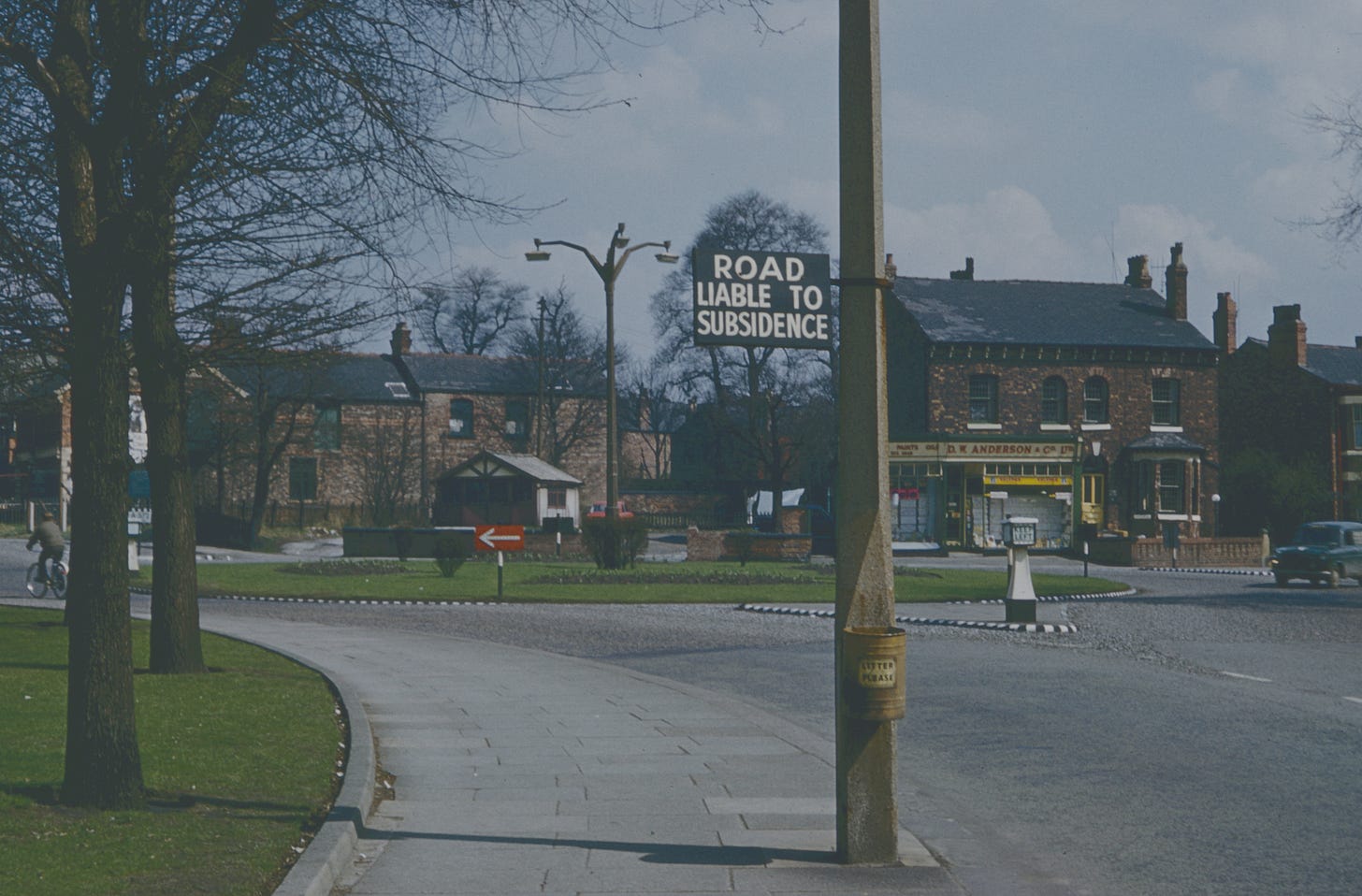From Parachutes to Punch & Judy: Irlam Festival Turns 75
What began as a post-war treat for local workers has grown, struggled, and endured — complete with fire-eating bikers, beauty queens, and blindfolded magicians.
In this week’s newsletter we look at the Irlam and Cadishead Community festival that will be celebrating its 75th anniversary on the August Bank Holiday.
We will also look at the closure of MediaCity’s ‘Original Local Pub’ The Dockyard, the key changes for Salford residents travelling on the tram network, and the vintage one-of-a-kind car boot event that will return for a second year at Media City this July.
If you enjoyed it, please forward this newsletter to someone who might enjoy it. Got a tip? Let us know at Now@Salford.ac.uk
The Irlam and Cadishead Community Festival is set to celebrate its 75th anniversary
Over the last 75 years, the landscape of Salford has changed: styles have shifted, attitudes evolved, and city boundaries redrawn. But in Irlam and Cadishead, one thing has remained a constant presence on the August Bank Holiday: the community festival.
First held in 1950, the Irlam and Cadishead Community Festival was born out of a post-war desire to celebrate, connect and bring joy to local families who couldn’t afford to holiday away. Instead, the festival brought the fun to their doorstep.
As local historian Debbie Yates says: “The festival started in 1950, and when you think back to that period, it was five years after the war ended. It wasn’t just for the poor people that couldn’t afford a holiday, no one could go on holiday.
“People wanted to do things, so that is where it began. So, it originally began with entertainers such as Punch and Judy, ventriloquists and going from Princes’ Park and Cadishead Park.”
From these humble beginnings, the festival evolved into a vibrant, week-long affair. By the 1960s, it was drawing crowds from across Greater Manchester. When the Irlam Baths opened, the heart of the festival shifted to the main park.
“That’s where the marquees, water polo tournament, swimming galas and entertainment began to get better and better.
“People would travel from Runcorn, and on the day, you couldn’t even get your car out of the street.”
For two decades, the festival thrived. Teams travelled in to compete in sports days, while others gathered in the beer tent; Debbie admits that’s where she spent much of her time. But by the 1970s, a different kind of spectacle took hold: beauty pageants.
“There was a huge rise in beauty contests, and I remember watching Miss Summer Show,” says Debbie.
“American culture was everywhere then,” Debbie explains. “The Miss Summer Show was massive. The winner led the Monday parade on the float. I thought it was just girls dressing up, but the prize was £250 and a weekend in Paris! No wonder my friends entered.”
Originally hosted by the British Legion on the Saturday during the 70’s the winner of Miss Summer Show would be on the lead float in the parade, which would open the festival on the Monday.
“But it got really serious, people would enter from all over the shop. We had Miss Isle of Man, Miss Railways, even Miss Tesco!”
The competition drew contestants from across the country: Miss Isle of Man, Miss Railways, even Miss Tesco. “It got serious,” she laughs. “We even had a swimsuit contest — can you imagine that now? Eventually people said, ‘bloody hell, no more.’”
Debbie remembers a moment that captures the legacy of the event: “An older woman came up to our display tent and said, ‘That’s me!’ She must’ve been in her sixties. That’s how far back this all goes.”
But by the 1980s, the festival’s future was uncertain. Irlam Urban Council merged with Salford City Council in 1974, and with it came deep funding cuts. The once-healthy £7,000 budget shrank to just £1,000.
“In 1974, they printed a poster: ‘This is the last year run by Irlam Council.’ Forty-five thousand people turned up,” Debbie recalls. “But it went downhill fast after that. In the late '80s, The Salford Advertiser ran the headline: ‘Turn Up or Else.’ That’s how desperate it got.”
Entertainment was reduced to a single day. The floats, parades, and marquee shows became a modest fairground with a few local exhibits. “It nearly didn’t survive,” says Debbie. “People started going abroad. The crowds just got smaller.”
She remembers watching the streets slowly empty: “I used to live on a back street near the festival, and every year our street would fill up with cars, but year on year we would see less and less of them — moving a street up or closer.”
But out of decline came change. The local community committee split from the festival committee, allowing them to apply for separate funding. This shift, according to Debbie, was vital.
She also credits the late Richard Abernathy (“a stalwart of the Festival Committee”) for helping pull the event out of the doldrums in the late ’80s and into the festival seen today.
“It is him we must thank for dragging the festival from the doldrums at the end of the 1980s into the festival today,” she says.
The revival focused on family and fun: donkey rides, Viking reenactments, cowboy shows, and quirky acts like Mr Magic, who drove blindfolded around a ring in the park. “Can you imagine that today?” Debbie laughs. “Everyone just standing there watching, hoping for the best!”
There was even a visit from the Kamikaze Motorcycle Rodeo Team — 15 teenagers from Leicester, trained by the police, who roared through walls of fire. “You wouldn’t believe these kids, flying through flames,” Debbie recalls.
And then there were the parachute stunts. Attendees would plant a tag in the ground, hoping a descending parachutist would land on it. “Sometimes they’d drift into someone’s garden,” she says. “You’d either hope for it — or dread it.”
As safety standards changed, some of the more extreme elements disappeared. But the festival’s spirit adapted, not faded. “It’s amazing to think about what we did,” Debbie reflects. “But if you don’t change, people won’t come.
“If you got the kids involved the better chance you have of surviving, because then all the family come along.”
Now, in 2025, the festival is preparing to celebrate its 75th anniversary. After a five-year break caused by COVID and funding issues, fireworks are returning to close out the weekend. The committee is crowdfunding to make it happen.
“With this being our 75th year, we want to make it special,” says Emma Woodward of the festival committee. “We’ve got a full weekend of activities planned. It’s about bringing the community back together.”
And as it reaches this milestone, one thing is certain: the Irlam and Cadishead Community Festival may have changed with the times, but its soul remains. Generations have laughed, danced, paraded, and played through its many iterations — and it’s not done yet.
Seventy-five years on, the festival is ready to do what it’s always done best: bring people together.
MediaCity’s ‘Original Local’ to close its doors after 13 years
MediaCity’s ‘Original Local’ has announced that it will close its doors for the final time after 13 years this week.
Since 2012, The Dockyard, has been a favourite amongst residents, serving “the largest rotating selection of craft beer and ale in the area.” Read more here.
Immersive exploration of the history of grime heads to the Lowry this June
An immersive exploration of the history of grime, Lil.Miss.Lady, heads to the Lowry this June as part of a UK tour and the company’s 10th anniversary celebrations.
The announcement comes fresh off the back of a sold-out World Premiere run at The Pit, Barbican, with a stop at Gloucester Guildhall in between, as the immersive exploration of the history of Grime, starring MC Lady Lykez. Read more here.
Tram network disruptions over the summer due to track replacements
Salford residents are expected to experience key changes on the tram network this summer as part of the next phase of a major £147m track development.
The development will look to maintain, upgrade and improve Greater Manchester’s tram network replacing essential track between Piccadilly station and Piccadilly Gardens.
The work is expected to take place between Tuesday, 3 June and Sunday, 10 August. Normal tram services resume on Monday 11 August. Read more here.
Community spirit of Walkden to be celebrated in ‘Grand Explosion of Bloom’ event
An event is set to take place this June celebrating the community spirit of Walkden and the changes being made to the area.
The event hosted by Walkden in Bloom on Saturday 7 June will aim to bring the everyone in the town together in a ‘Grand explosion of Bloom’. Read more here.
What’s On in Salford this week
🖼️ Discover the extraordinary stories behind some of the nation’s favourite portraits, in this new immersive experience at Media City inspired by the National Portrait Gallery at Stories – Brought to Life - more information found here.
🎭 The National Theatre’s Olivier Award-winning smash hit Dear England continues its run in Salford, following a record-breaking run in the West End. The show will run until Sunday 29 June - more information found here.
🙌 Residents across Salford are invited to Carers Week, with the celebrations taking place between Monday 9 June to Sunday 15 June, being hosted for people who care for a family member, friend or neighbour - the full schedule can be found here.
Our photo of the week: Monton Green in the 1960s
Monton Green is a key feature of the Worsley area and is a focal point for community activities. Since 1998, the rose, shrub and flower beds have been maintained by community volunteers with financial support from local businesses.
In the photo, the notice is proclaiming that the road around Monton Road is liable to subsidence is a reminder of the time, in the late 1950s, when there was a rumble one night and, next morning, the road was sporting a small cliff of about 30cm, where it had slipped along a fault line.
The gap between the buildings on the corner is where properties had to be demolished, as they had become unsafe on account of the movement.
Thank you for reading
All our journalism is written by people working, studying and living in Salford – for the people of Salford. If you value local journalism, sign up: it’s free, easy, and we’ll never share your data.

